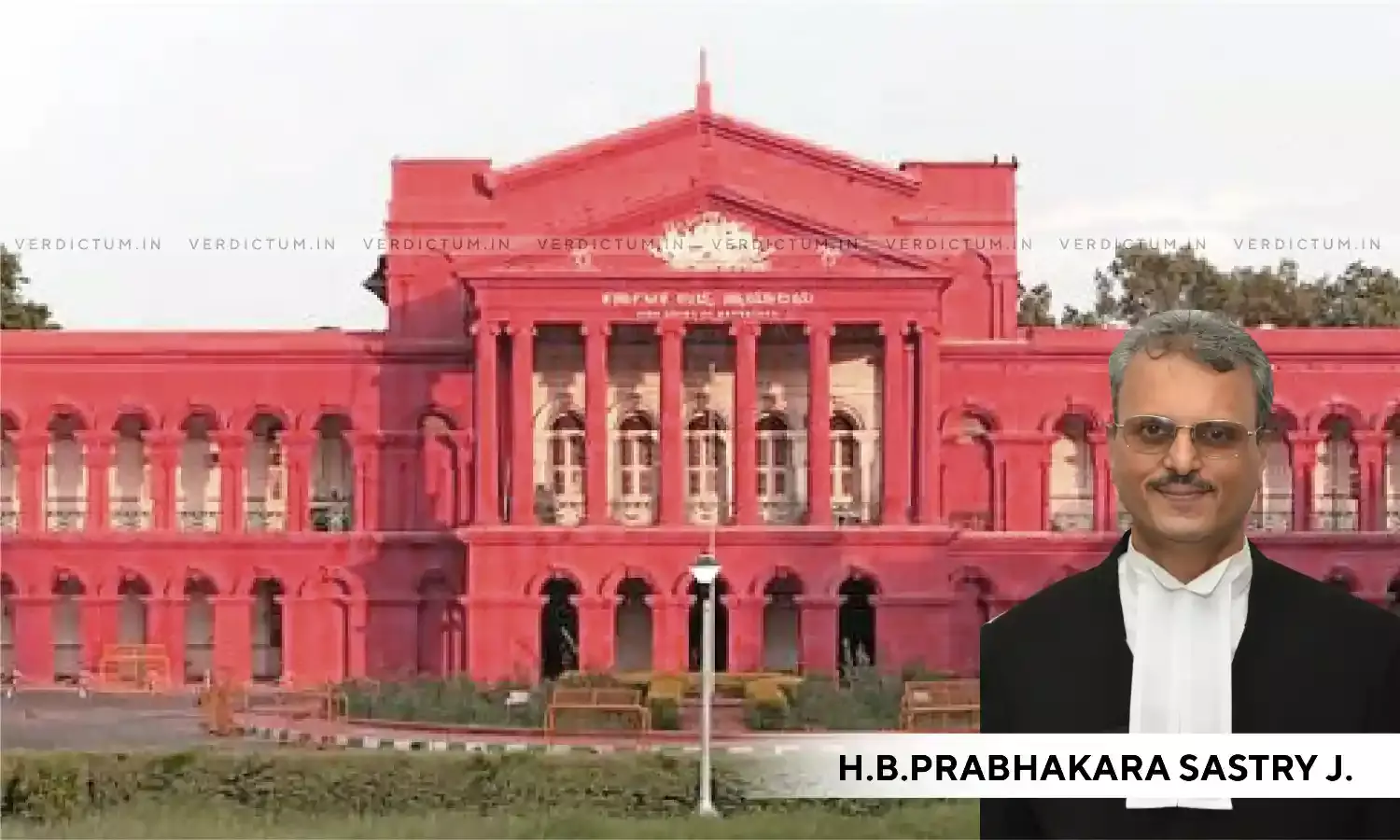Every Offence Punishable Under NI Act Is Compoundable, No Bar On Parties To Proceed For Compounding - Karnataka HC

The Karnataka High Court has held that Section 147 of the Negotiable Instruments (NI) Act has made every offence punishable under the NI Act as compoundable. The Single Bench of Justice H.B Prabhakara Sastry held that there is no bar on parties to proceed for compounding of offence.
The Court made this observation while adjudicating upon petition seeking compounding of alleged offence punishable under Section 138 of the NI Act 1881.
In this case, the petitioner-Arun Vincent Rajkumar was convicted by the trial court for the offence punishable under Section 138 of the NI Act 1881. The judgment and order of sentence passed by the trial court were upheld by the first appellate court.
Now both the parties viz. the complainant and the petitioner came up with a memorandum of settlement and filed interlocutory applications under Section 147 of the NI Act read with Section 320 (6) of the Code of Criminal Procedure before the High Court.
The Court observed that the complainant has agreed for the acquittal of the petitioner from the alleged offence by accepting an amount to the tune of 9 lakh rupees from the petitioner. She also agreed for refunding the deposits said to have been made by the petitioner in Trial Court and in the High Court.
The Court also observed that both parties entered into terms of the settlement with free consent and out of their own volition and without any undue influence.
The Court noted that the complainant who had acknowledged the receipt of the sum of 3 lakh rupees given to her by the petitioner also acknowledged receipt of another 6 lakh rupees from the petitioner. The court further noted that the complainant agreed to release the deposits if any made by the petitioner in the trial court or the high court.
Advocate Satyanarayana S. Chalke appearing for the petitioner argued that the graded cost of 81k rupees must be deducted from the amount deposited by the petitioner to the court and to release the balance amount.
The Court noted that "Section 147 of the N.I. Act has made every offence punishable under the N.I. Act as compoundable. As such, there is no bar for the parties in the proceeding to compound the offence."
The Court also observed the guidelines laid down by the Supreme Court in Damodar S. Prabhu's case regarding imposing a graded cost on litigant. Accordingly, the Court held that the parties were allowed to compound the offence subject to the payment of 81k rupees by the petitioner towards graded cost within 15 days.
The Court, subject to the payment of the graded cost by the petitioner, set aside the judgments of conviction and order on the sentence by the trial court and impugned judgment passed by the first appellate court against the petitioner.
Click here to read/download the order

